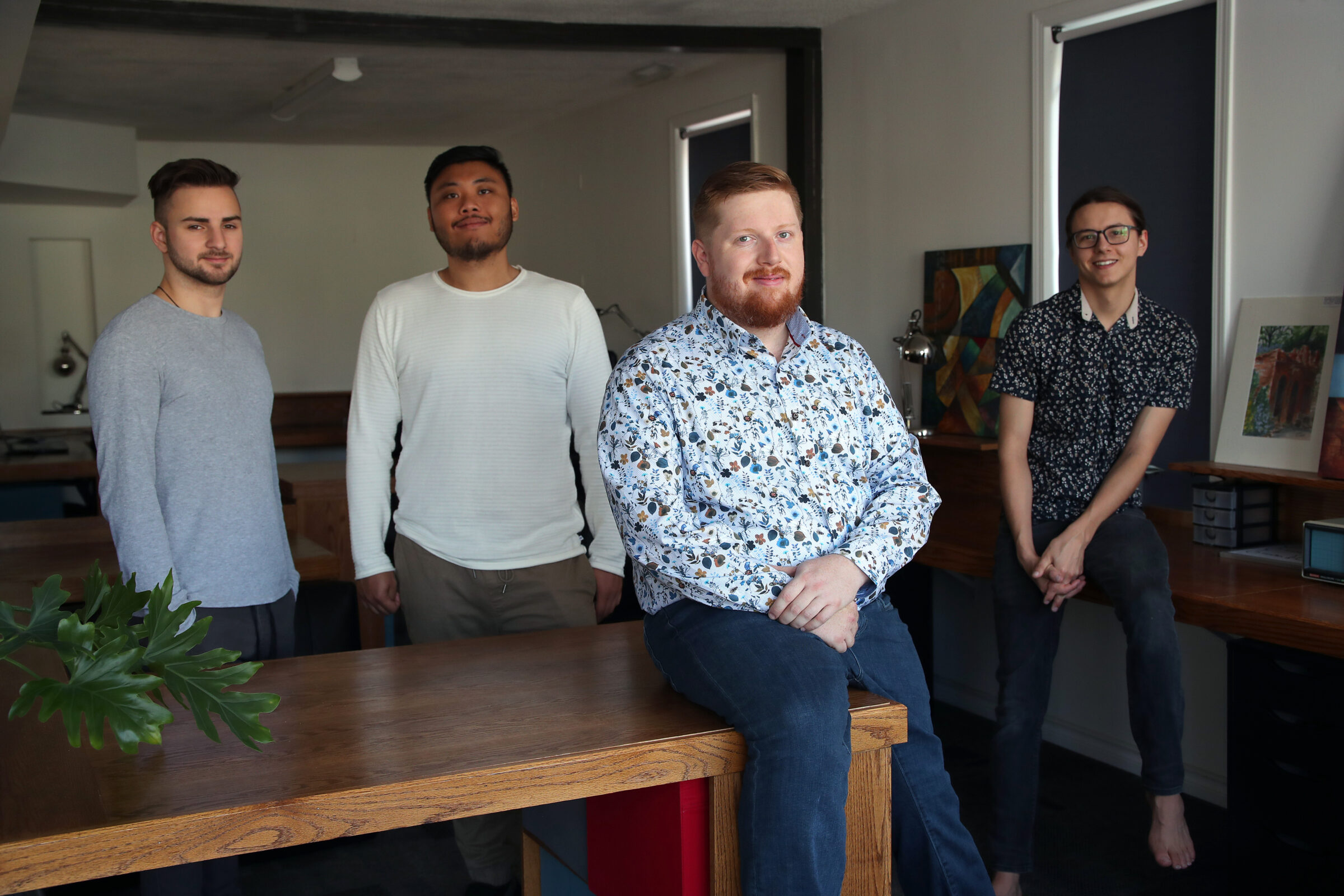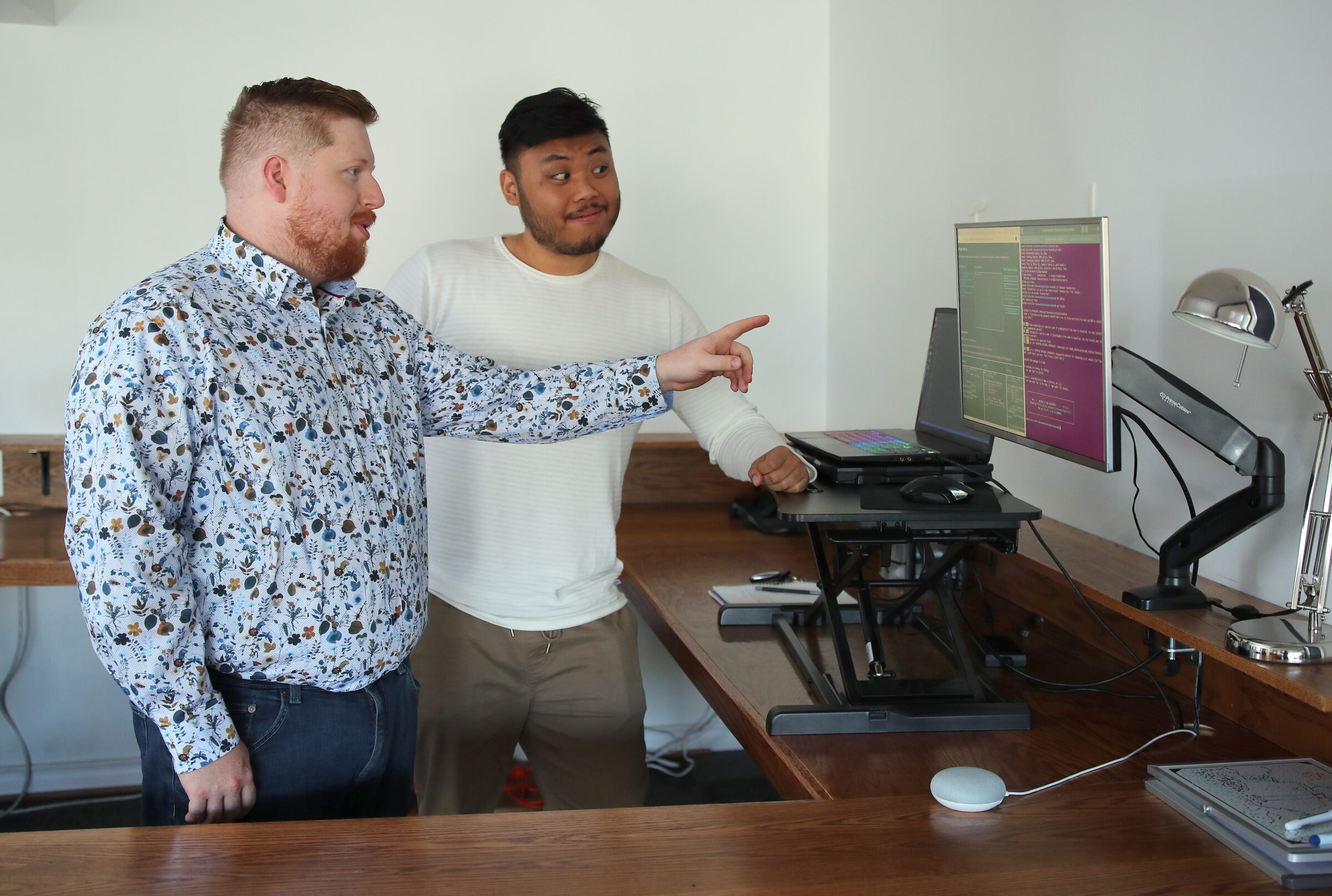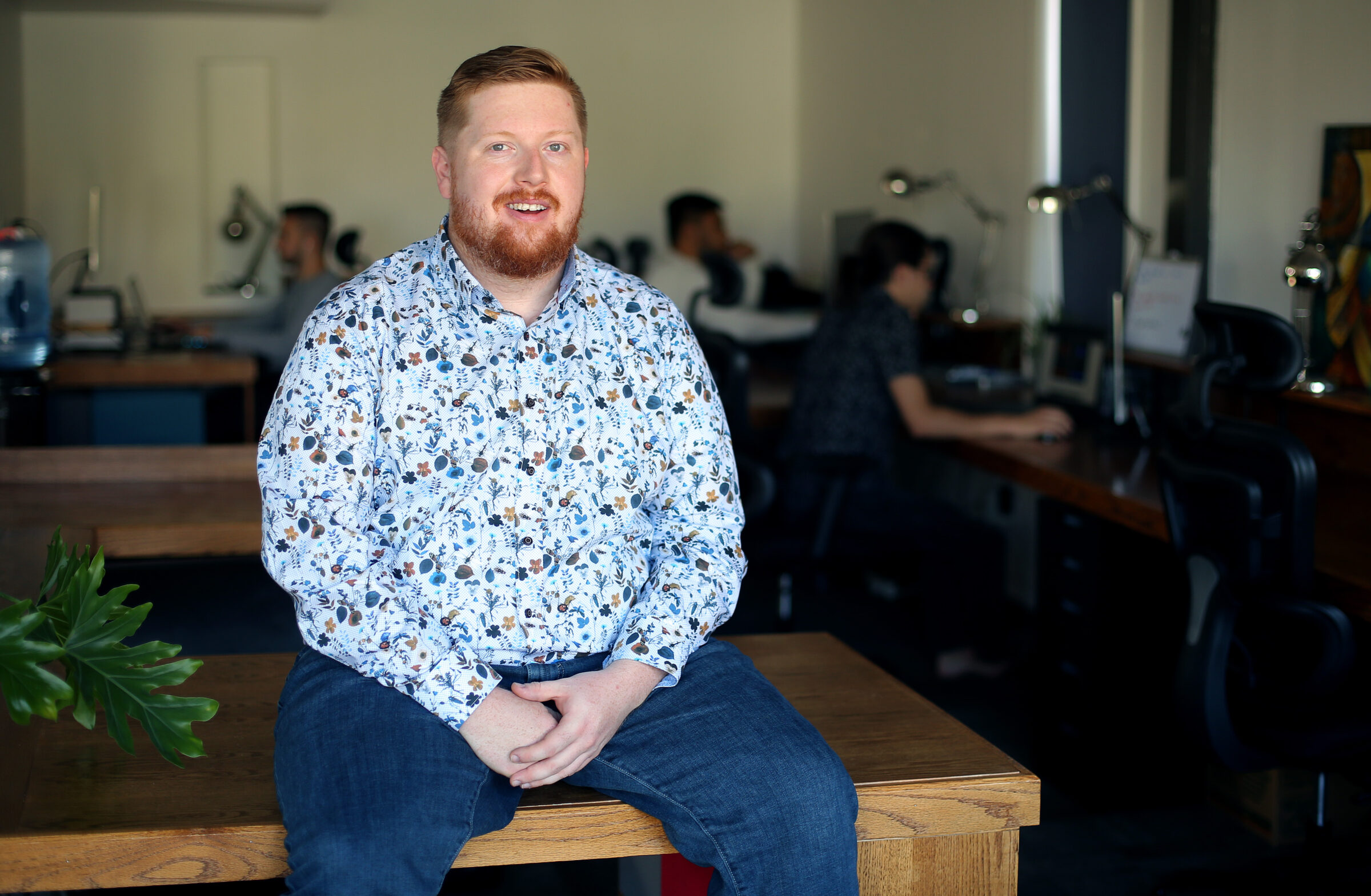IT grad “Karves” out niche as co-owner of agile tech startups
James Warren is a big believer in having the right tool for the right job.
“You use a drill to drive a screw,” he says. “But sometimes, a drill is too much — you need to be more delicate, so you use a screwdriver. You can have different tools for different applications.”
Warren does not work in carpentry or building construction. Rather, he is CEO and part-owner of Karve, an information technology (IT) start-up in Winnipeg. The company was born of his time as a budding entrepreneur in the ACE Project Space at Red River College Polytechnic.
Warren and his Karve business partner, Jared Kozak, also co-own another tech company, DueNorth Systems. The two met when they were both with the Royal Canadian Navy. Warren remembers being “fascinated” by Kozak, a self-taught programmer in high school at the time.
Today, with a small staff made up of RRC Polytech graduates, they build, sell and maintain enterprise resource planning (ERP) software systems, the architecture of which sounds complex to the untrained ear. These systems are used to manage the various flows for operations of medium to large-scale businesses. In other words, resource planning.

Warren uses a multinational moving company called You Move Me as an example to illustrate how his company’s ERP software works. It enables movers to schedule a crew, who get a particular truck, which gets assigned to a particular job, which needs a set of materials and assets that need to be on that truck for that job. The crew needs to go to the client’s starting location, pack a house, go to an ending, unload, and finally return to the office.
“The perfect audience for our platform is in companies that understand there are technological ways to improve,” Warren explains, while seated in Karve’s new offices in Osborne Village. “They must also understand that technology isn’t always the answer.”
Warren graduated from RRC Polytech’s Business Information Technology program in January 2018. A clever and innovative student, he left school with the mindset that he wanted to start his own business in technology programming and developing software. He knew exactly where to turn.
Warren was quickly selected by faculty as an entrepreneur-in-residence (EiR) in the College’s ACE Project Space, an interactive workspace used by students, entrepreneurs, corporations and non-profit organizations to collaborate and bring unique ideas to life.
He eventually served two four-month terms as an EiR throughout 2018, working hands-on with students he mentored from the Business Information Technology, Business Technology Management, and Information Security programs. At the ACE Project Space, teams of two to five students per project are given access to working space, technology and mentorship.
“Most of the entrepreneurs-in-residence in the ACE Project Space don’t come from a technical background as I did,” says Warren. Instead, most EiRs come to the program with a business idea that requires a technology-related solution, product or prototype. “That leaves the group of students to find the solution and build the technology stack. Creativity often comes into play as they research things and figure out what the best solution to build for the entrepreneur will be.”
“I knew what they went through in school, and I knew what talent was there. So, we worked more closely on more complex technology stacks,” Warren continues. “ACE provided Jared and me with low overhead and access to students, so we could play as a team with newer technologies and not have to be focused on the bottom line. We could stay focused on building sustainable technologies that are easy to maintain and have a low cost of continued maintenance.”
The software systems that Warren and his students started to build when they were in the ACE Project Space pivoted for him into the new company, Karve IT.
“A lot of times, a company will build what is known as a monolithic system, shaped like a pyramid. It has a heavy base, and if you need to change something on the bottom, it’s very costly; very big and cumbersome,” he explains.
“At Karve, we build microservice architecture. Our microservice system is more like a children’s ball pit. Each one of our systems is an individual ball — they can interact with each other, you can move them around easily, and each node can interact with other nodes. Because we were able to build our technology in that way, we were able to pivot our software very quickly to adapt to different types of clienteles and other applications.”

Named for a mid-sized Viking ship with an agile design that allows it to be highly mobile and to immediately change course, Karve was founded in April 2021. A third-party investor had approached Warren and Kozak, at first interested in investing in the software platform they co-owned under DueNorth Systems. The investor, a publicly traded investment firm called Plank Ventures, asked for an angel deal and controlling shares of the company.
However, DueNorth had developed relationships with several clients who were not part of the deal offered by Plank. “We had a pool of assets, and this investor wanted only a controlling share in a single asset, the platform,” says Warren. In a savvy business move, he and Kozak established Karve. “We sold the platform from DueNorth to Karve, which left Plank (and eventually, others) free to invest in the new company while DueNorth remained untouched.”
With Karve established and growing, Warren and Kozak quickly hired developers directly out of the ACE Project.
“We knew what the students were capable of, we knew what they had learned, and so we already had this crystal-clear picture of what they know. From a management perspective, if you know what your team knows, it’s easier to apply that knowledge and encourage them to continue to grow past that. It allowed us to propel that onboarding and training process by continuing to work with the ACE Project Space students.”
Alexander Rennie was hired first out of the ACE program, as Karve’s lead front-end developer. “We saw Alexander’s talent when he was on our project in the ACE Project Space, and we helped train him on a technology we wanted to use. So, now we had a student coming out of school, well-versed in exactly what we needed him to be well-versed in. He had a good attitude and was a good cultural fit with the team, so it was a no-brainer for him to join us,” says Warren.
Not long after, Warren and Kozak hired another ACE student, Jeremiah Ducut, as their lead back-end developer.
“Jeremiah was on another project after I had left the ACE Project Space, but he came recommended by the faculty. Alexander also knew and liked him,” he says.
Profile by Nigel Moore (Creative Communications, 1998)

